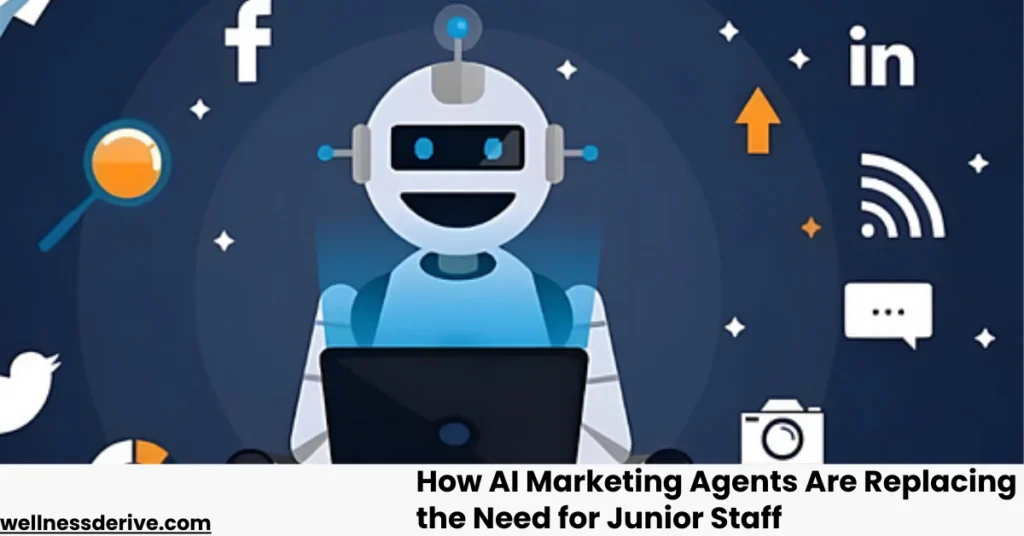For years, small business owners and solo founders have struggled with a familiar problem: they need help, but can’t afford to build out a full marketing team. Enter the junior marketing assistant—someone to help write captions, monitor analytics, schedule posts, and keep campaigns on track. But today, that role is being quietly redefined by AI marketing agents.
AI Agents: A Smarter, Stress-Free Support System
These AI tools are stepping into the shoes of entry-level marketers, and they’re doing it surprisingly well. From drafting emails to segmenting audiences and optimizing content based on performance data, AI marketing agents can handle a range of tasks that once required dedicated human hours. For the overworked founder, this isn’t just convenient—it’s transformative.
Adapting in Real Time: A Dose of Cognitive Relief
Unlike traditional automation, these AI-powered assistants don’t just follow a set of rigid rules. They learn from data, make predictions, and adjust in real time. If a certain Instagram post is getting more engagement than usual, the AI might suggest doubling down on that format or topic. If email open rates drop, it might recommend a new subject line strategy based on trends it’s observed. This level of intelligence is what sets them apart from the simple automation tools of the past.
Consistency Across Channels—A Prescription for Brand Health
These tools are also deeply integrated. Many AI marketing agents, such as Blaze AI’s agent, are designed to work across platforms—from email to paid ads to social media scheduling tools. This allows them to maintain a consistent brand voice and strategy no matter where the content lives. They take into account visual aesthetics, language tone, and user engagement trends. This means your Facebook ad won’t sound wildly different from your Instagram caption or your blog post intro. Instead, they feel like parts of the same thoughtful, coherent brand experience.
From Burnout to Balance: Reclaiming Time for Strategic Thinking
What used to take an entire afternoon—building an email campaign, scheduling posts, gathering analytics, and creating a report—can now happen in a matter of minutes. This frees up time for strategy, content ideation, and high-level decision-making. Business owners and small marketing teams can now spend more time crafting long-term visions and less time buried in dashboards and spreadsheets.
Leveling the Playing Field: AI and Marketing Equality
But perhaps the most exciting shift is in how these tools are democratizing access to high-level marketing. Not long ago, only larger companies with full-time teams and generous budgets could afford to experiment with A/B testing, dynamic content, and audience retargeting. Today, a solo entrepreneur with a laptop and the right AI tools can do the same—and often faster.
Redefining Junior Roles: From Monotony to Meaningful Work
It’s important to clarify that this doesn’t mean junior staff are irrelevant. In fact, by automating repetitive tasks, AI elevates the roles of junior marketers. They can now focus on creative brainstorming, campaign testing, or customer engagement—things AI isn’t quite ready to master. A junior marketer today might spend less time drafting ad copy and more time analyzing performance insights, pitching new content series, or managing community relationships.
Human + AI = A Healthier Work Ecosystem
Think of it this way: AI agents handle the grunt work. People handle the growth work.
AI marketing agents are like reliable interns who don’t sleep, don’t need training, and get better the more you use them. For small businesses, this isn’t just a competitive edge. It’s a way to do more with less, stay nimble, and scale without sacrificing quality.
Why AI Still Needs a Human Touch
That said, effective use of AI still requires human guidance. AI isn’t a magic button—it’s a tool. And tools are only as effective as the person using them. Business owners still need to teach the AI what their brand sounds like, what kind of content their audience loves, and how to measure success.
Emotions, Intent, and Seasonal Wellness Campaigns
For example, while an AI can write a perfectly readable blog post, only the business owner can ensure it captures the right emotional tone or aligns with a seasonal campaign. While AI can create a marketing calendar, only a human can judge whether its timing feels right based on industry trends, holidays, or product inventory.
A New Era in Marketing Education and Mental Efficiency
As AI continues to evolve, we can expect these agents to become even more intuitive—anticipating trends, suggesting campaigns, and even managing budgets. Junior marketers may shift into AI supervisors, guiding the tools rather than competing with them. Entire new roles may emerge, such as AI content editors, AI brand curators, or campaign QA managers.
This shift could redefine marketing education, too. Instead of learning to write dozens of unique captions by hand, tomorrow’s marketers may be trained to teach AI how to write in brand voice. Instead of analyzing raw performance data line by line, they’ll interpret the insights AI presents and act on them with creativity and speed.
Final Thoughts: Empowering Wellness Through Smarter Workflows
This isn’t a distant future. It’s already happening. And the businesses that learn to blend human creativity with AI capability will be the ones that win.
In the end, it’s not about replacing people. It’s about giving small teams the power to operate like big ones. AI marketing agents are the silent teammates that free up time, elevate creativity, and bring clarity to the chaos of modern marketing.
And for many small business owners, that’s the teammate they’ve been waiting for all along.
Disclaimer: The content on Wellness Derive is for informational purposes only and not a substitute for professional medical advice, diagnosis, or treatment. Always consult a healthcare provider for medical concerns.



